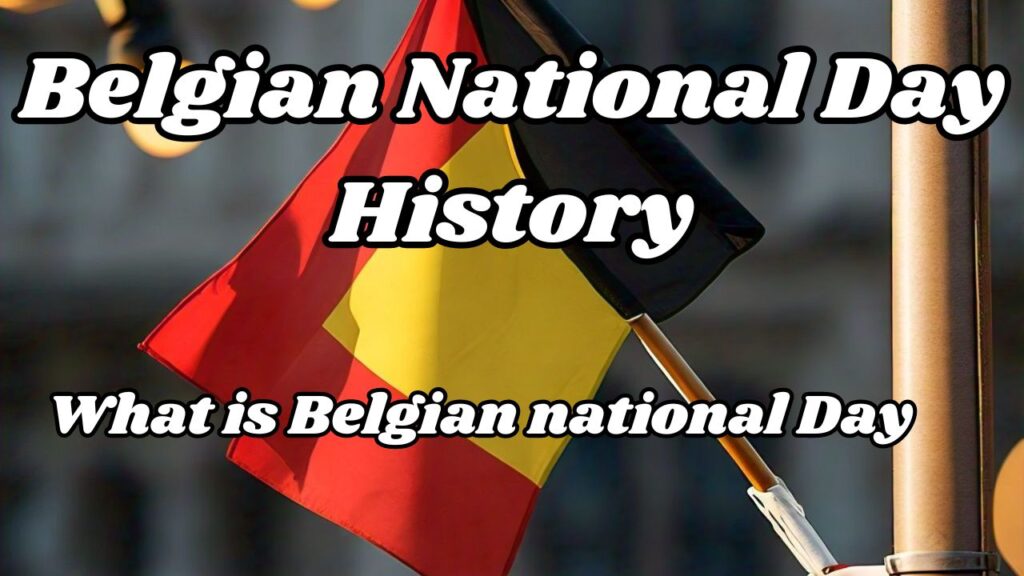Belgian National Day History: What is Belgian national Day

Belgian National Day History
Belgian National Day, celebrated on July 21, commemorates a significant moment in Belgian history—the day in 1831 when Leopold I took the constitutional oath as the first King of the Belgians, celebrating the creation of the sovereign Kingdom of Belgium.
Here is a brief overview of the events leading to this day:
- Belgian Revolution (1830): The Belgian Revolution was a revolt against the United Kingdom of the Netherlands, which was formed after the defeat of Napoleon in 1815. The Belgians were dissatisfied with Dutch rule due to cultural, religious, and economic differences.
- Proclamation of Independence: On October 4, 1830, the Provisional Government declared Belgium’s independence. A National Congress was elected to draft a constitution.
- Adoption of the Constitution: The Belgian Constitution was adopted on February 7, 1831. It established a constitutional monarchy with a parliamentary system, guaranteeing civil liberties and political rights.
- Selection of a King: The National Congress offered the throne to Leopold of Saxe-Coburg and Gotha, who accepted the offer.
- Leopold I’s Oath: On July 21, 1831, Leopold I took the constitutional oath as the first King of the Belgians. This event solidified Belgium’s status as an independent and unified country.
Belgian National Day is marked by various celebrations, including military parades, fireworks, and cultural events, highlighting Belgium’s national pride and unity.
What is Belgian national Day
Belgian National Day, celebrated on July 21, marks a significant moment in Belgian history and is a day of national pride and festivity. Here’s an overview of what Belgian National Day is and its historical significance:
Historical Significance
- Independence and Revolution:
- Belgian National Day commemorates the day in 1831 when Leopold I took the constitutional oath as the first King of the Belgians. This event marked the establishment of Belgium as an independent kingdom, following the Belgian Revolution against Dutch rule in 1830.
- King Leopold I:
- Leopold of Saxe-Coburg and Gotha was chosen by the National Congress to be the first king of the newly independent Belgium. His acceptance and oath-taking on July 21, 1831, solidified Belgium’s independence and laid the foundation for the constitutional monarchy that continues today.
- Constitutional Monarchy:
- The adoption of the Belgian Constitution in 1831 established a parliamentary system with a constitutional monarchy, guaranteeing civil liberties and political rights. This marked a crucial milestone in establishing a stable and democratic Belgium.
Celebrations and Traditions
- Military Parade:
- The day begins with a grand military parade in Brussels, showcasing the Belgian Armed Forces, police, and emergency services. This parade is attended by the royal family and government officials and is a symbol of national unity and strength.
- Te Deum Service:
- A traditional Te Deum service is held at the Cathedral of St. Michael and St. Gudula in Brussels, with the royal family and other dignitaries in attendance. This religious service is an integral part of the day’s events.
- Public Festivities:
- Throughout the day, various public events take place, including concerts, street performances, and cultural exhibitions. Public squares and parks, particularly in Brussels, are filled with food stalls, games, and live music, creating a festive atmosphere.
- Fireworks Display:
- The celebrations culminate in a spectacular fireworks display in the evening, often near the Royal Palace or Parc du Cinquantenaire. This event is one of the highlights of the day, drawing large crowds.
- Illumination of Buildings:
- Prominent buildings, including the Royal Palace and Brussels Town Hall, are illuminated with special lighting, adding to the festive ambiance.
National Unity and Pride
- Belgian National Day is an occasion for Belgians to express their national pride and celebrate their shared history and culture. This day brings together people from different regions and communities to honor the unity and diversity of Belgium.
Conclusion
Belgian National Day on July 21 is a day of patriotic celebration, commemorating the establishment of Belgium as an independent kingdom and honoring its history, culture, and traditions. It is marked by various festivities, including parades, religious services, public events, and fireworks, reflecting the national pride and unity of the Belgian people.
